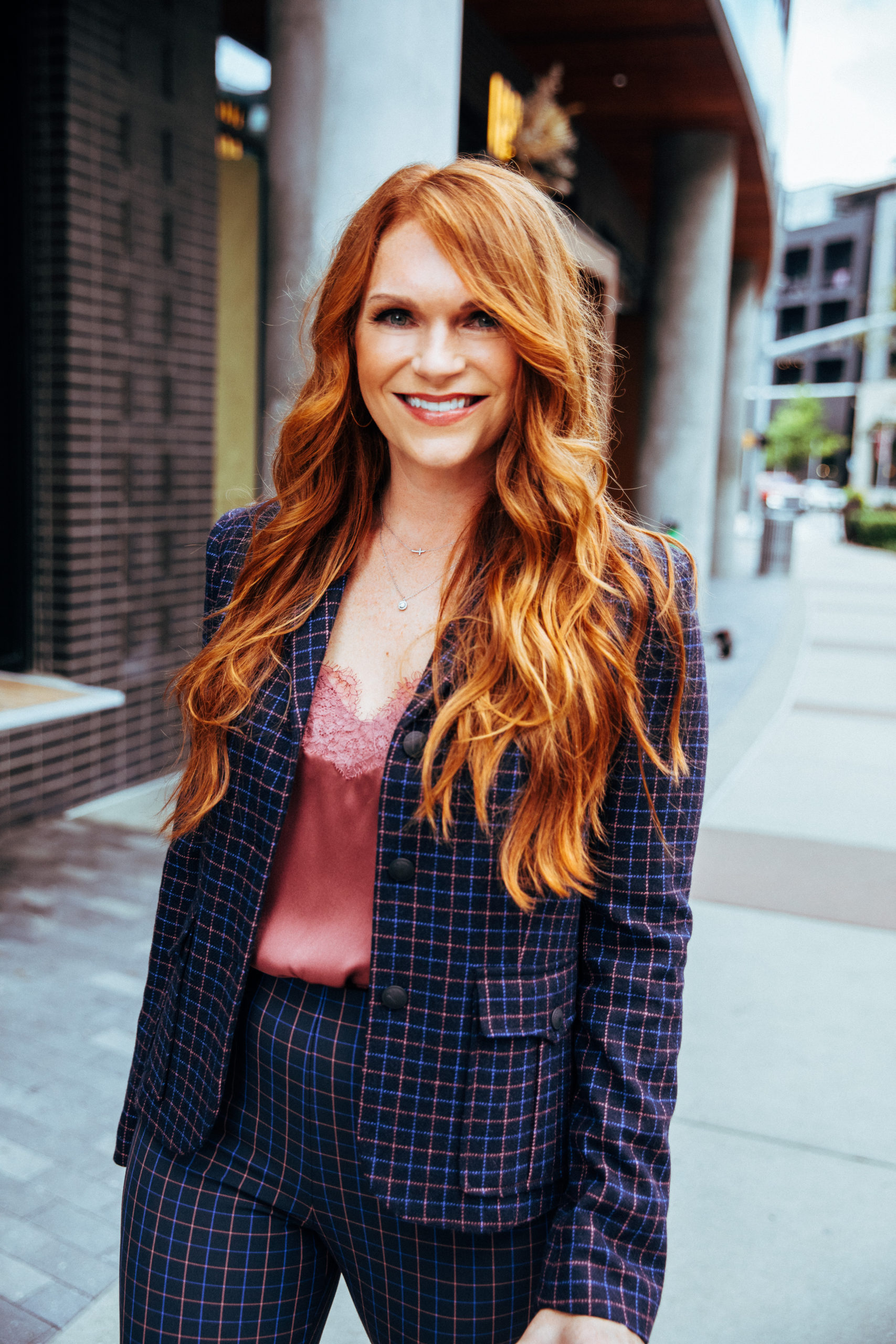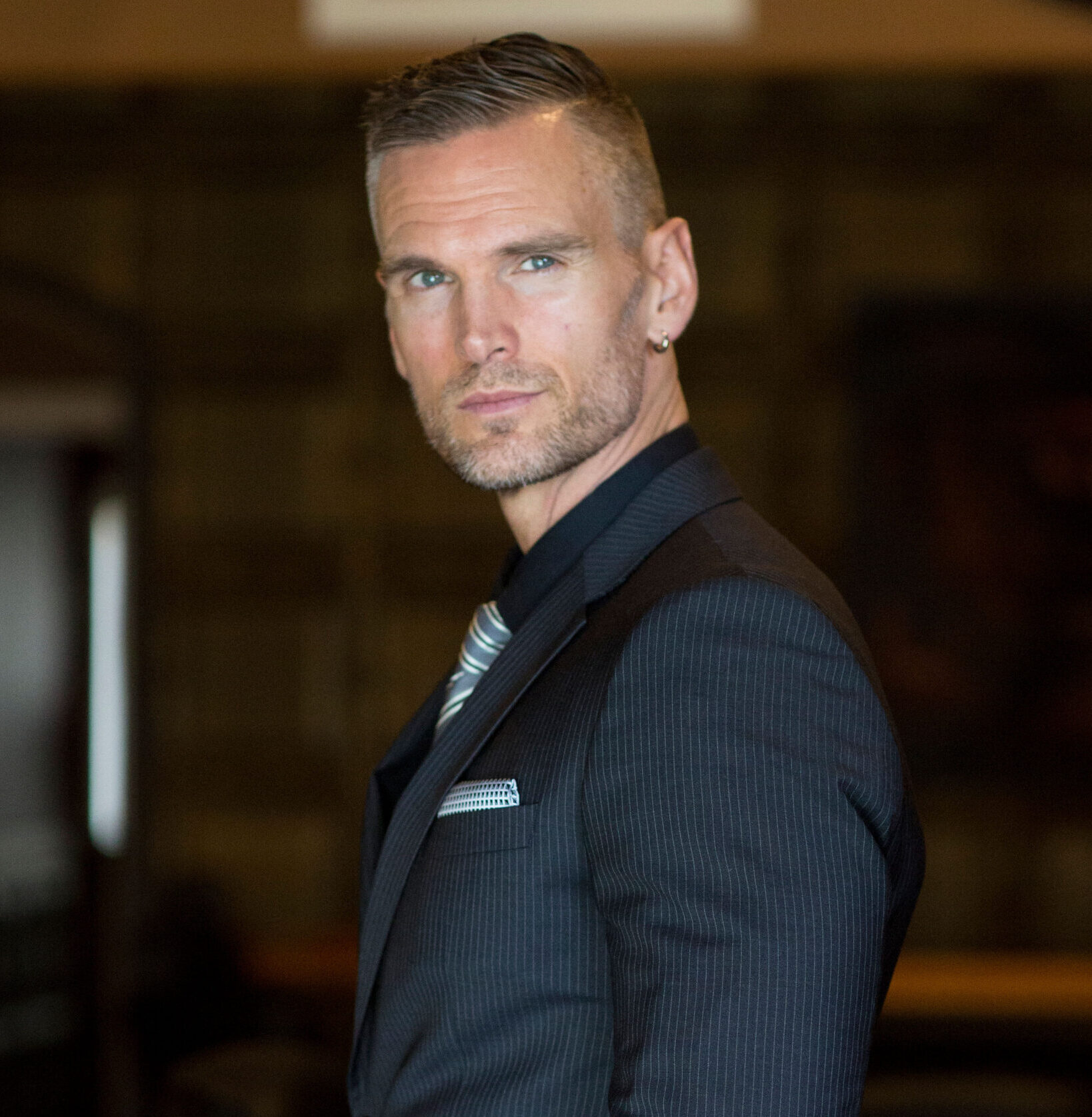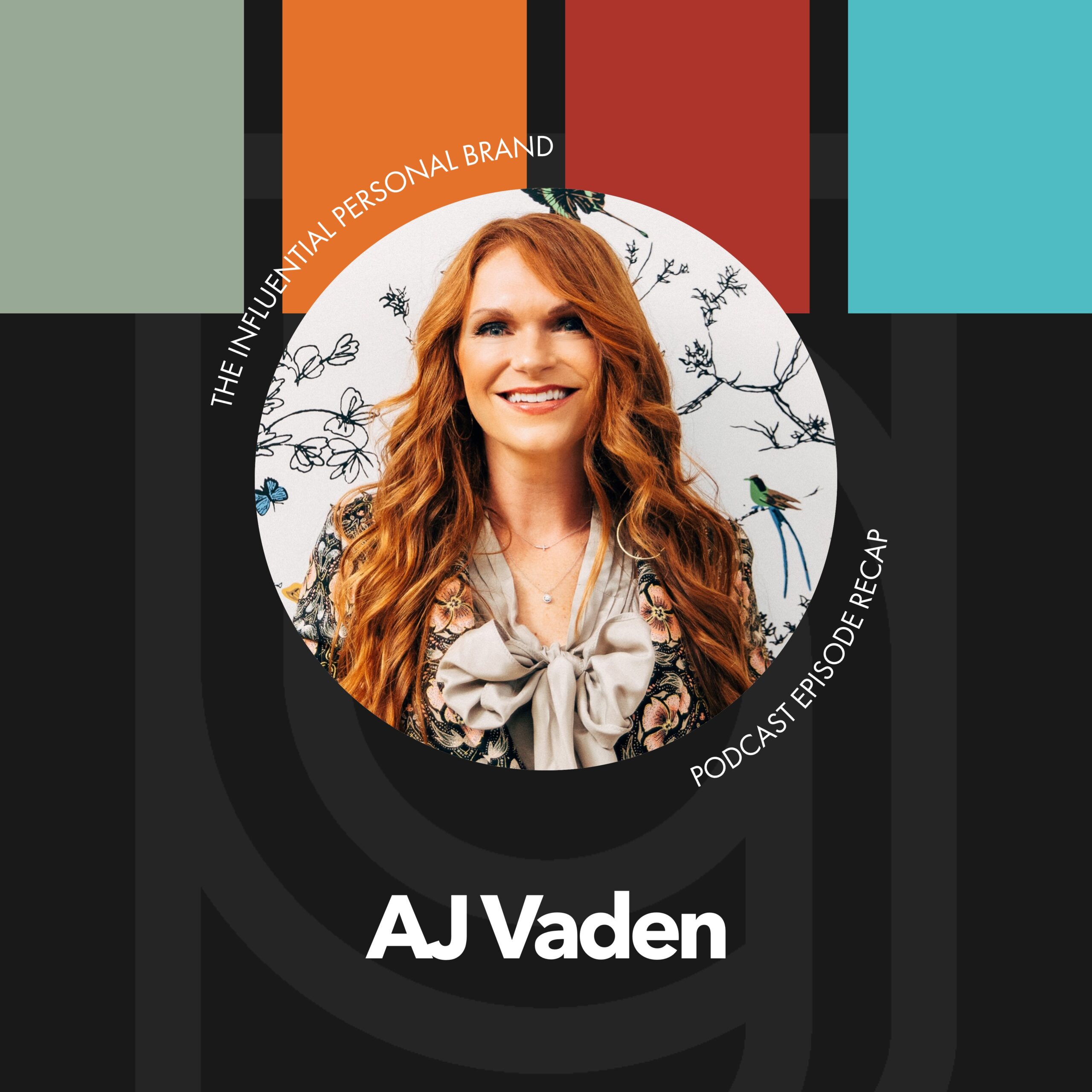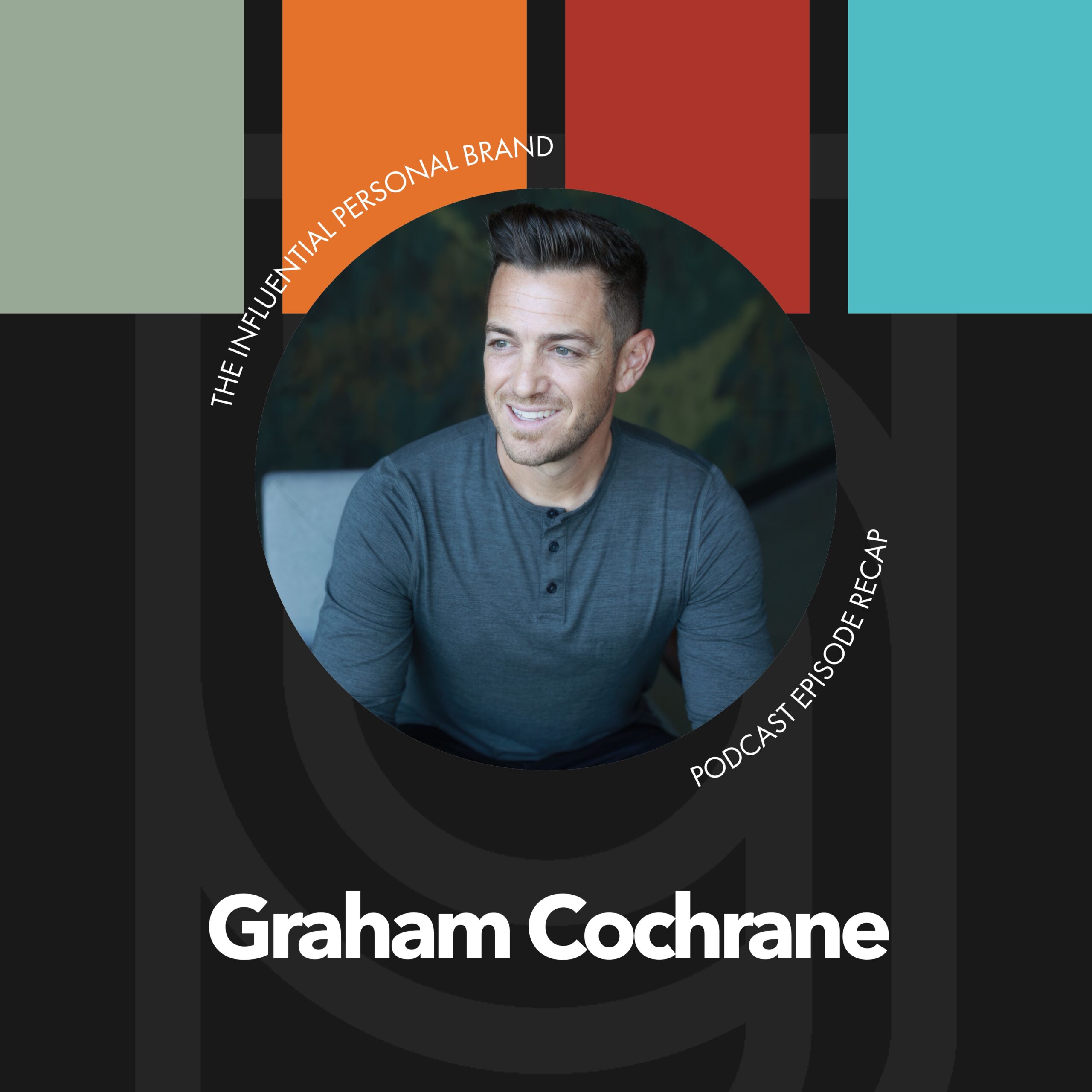AJV (00:02):
How do you go from zero to eight figures in five years or less? That’s what we’re gonna be talking about today. And I gotta be transparent. I gotta be honest. I was actually in the shower this morning and I was brainstorming, what am I gonna do for this solo episode for our podcast today? And I, I looked over at my husband, Rory, and I said, Hey babe, what do you think would be worthy of doing a solo podcast episode, which is what we’re doing right now? And he said, babe, you gotta talk about the growth trajectory of Brain Builders Group. Because what’s what’s been done is something that has happened organically and the lessons that we have learned are extraordinary for entrepreneurs. And mainly because of all the things that we’ve done wrong. But luckily over the last five years, there’s been a few things that we’ve been blessed to do right through the grace of God and good coaches and mentors and amazing community.
AJV (00:54):
And in a fantastically awesome team at Brand Builders Group, we’ve been able to pull some pretty cool things off. And so we’re gonna talk about that. It’s what are eight things that you should know to help you go from zero to eight figures and five things and five years or less, right? So number one, focus on sales and revenue first. And don’t hear what I’m not saying. I’m not saying don’t focus on people or service. What I am saying is you have to know how to sell your product and service as the first thing you do. You have got to have a sales oriented mindset, a revenue focused effort before you start thinking of things that are ancillary, which I’m gonna throw out there would be marketing, right? And this will hear, hear more about this over our story, but it was sales first. It was like, we have to bring revenue in the door. If we’re going to make it, we’ll figure the rest out later. We’ll get better as we go, but we have to figure out how to sell this first. So it was figuring out what problem we solve, who we solve it for, the unique way in which we solve it. It’s what at Brand Builders Group, we call your brand positioning statement. It’s what are the offerings that
AJV (02:03):
We have and the price points, which will inevitably change. They will evolve. They must evolve. They must change as you grow as a company. But first and foremost, you have to know how to sell what you offer products or services alike. So, sales mindset first, revenue focused first. Not in lieu of service, but you’ve gotta bring clients in the door. You gotta bring money in the door in order to serve them well. So that was number one. Number two,
AJV (02:35):
Make more than you’re spending, right? Simple Law of Economics. Spend less than what
AJV (02:43):
You’re earning, right? In our case, it was like we, we were focused on making more than we were spending. And that means that us as the business owners were the, honestly, the, the lease paid people in the company for a minute. ’cause We could afford it. We had lots of savings. But
AJV (02:58):
We were not getting big office spaces. We still work from home. Still don’t have a permanent office space. We still use coworking spaces. We’ve decided that’s not the right capital investment for our company. We are investing in other things first. Website. We, we had, we full launched as a company way before we had a website. We didn’t even have a website until we were almost a full eight months in to Brand Builders group. So yeah, it’s a little bit amazing that this thing took off the ground, but it did. And we’ll talk about why. But just focus on spending less than you’re making, right? Be wise with the money. We did not take loans. This was all self-funded. I’m not saying don’t take a loan, I’m just saying we didn’t. ’cause We were sales focused first and we were focused on making more than we were spending, right?
AJV (03:43):
That was number two. Number three, build and adjust as you go. We were not tied to, it has to be this way. In fact, we were tied to the fact that we don’t know how it’s supposed to be. That we’re very open and very quick to adapt. And I think that’s one of the, the great blessings of our team and our company at Brain Builders Group is we are quick to pivot and rather everyone that is a part of our team is naturally this way, or they have adapted and adjusted to be this way. Our team has an incredibly high tolerance for change. Myself and my business partner, my husband, Rory, have an incredibly high tolerance for change because we know that in a startup, that we know in order to survive, in order to succeed, things have to change. And they, we have to be able to change them quickly.
AJV (04:27):
There can be no bureaucracy. We have to see a problem, fix a problem, right? See something, say something. Airport policies, we gotta be able to quick to pivot, right? And as a smaller, more nimble company we’re able to do those things. So we have been very willing to build and adjust as we go knowing that what we build today very likely won’t be a fit for even a year from now. And we’ve bought into the idea that that means we’re growing. That means we’re succeeding. So we’re buying into that. That’s a choice. It’s not a choice everyone wants to make, but it’s a choice that is necessary to make. And that with a changing market, a changing economy, changing technologies, as you have to be willing to build and adjust as you go, you cannot build it to be perfect and wait till it’s perfect to sell it.
AJV (05:13):
‘Cause That date never comes, right? It’s never gonna be perfect. It’s never gonna be exactly the way that you want it. There are 1,000,001 things I could list out right now that I wish were different, that I wish were better, that I wish were X, Y, and Z. But that doesn’t mean we don’t launch. That doesn’t mean that we don’t continue as is because what we have is good. And that’s how you know that it’s ready to sell. ’cause You know that it works. You know that it can help people. And we work to make it better every day, every week, every month. But it’s not the best. It’s better. And that’s okay. So build and adjust as you go. Number four, hire, right? Hire for the long term and set the vision for the people hiring, right? You’re gonna probably hear me mention the importance of team members again, in just a, a second.
AJV (05:55):
But hire right means hiring for the long term. And what I mean by that is like, when we bring on somebody literally on our first interview, I tell people and I think that’s something that I would just, I would like to mention, I’m a part of every single interview process. I do not hire anyone for any position in our company without also getting to meet them and interview them. This is a family. This is not just a business to us. This is our ministry. This is our calling. This is what we feel like we were put on this planet to do. And we wanna do it with people who share those values and beliefs and who are in it for the right reasons and who are in it for the long term. So on the very first interview, I say, I’m not asking you to sign a 50 year contract, although I would if I could.
AJV (06:37):
But I am asking you to don’t take this position. Don’t continue this interview if you don’t think this is a company that you could be with in 10 years, right? And I think that says something because we want to hire top talent. That doesn’t mean we can’t afford all top talent, but it means we want to hire the top talent so that we can afford top talent. And you do that with having a long-term in mind of like, Hey, we see the potential in you and in this company, and we want you to be here when we can afford to pay the top, the top pay for the top talent. We don’t want to grow and replace, grow and replace. We want to grow and promote, grow and promote, grow and promote the team that is here today. I would love to say that we hired so well, and so, right?
AJV (07:21):
It’s almost the same team that you’re gonna see in five years or 10 years, knowing that of course there’s gonna be turnover. We have had turnover. We have made not ideal hiring decisions based on fit and skills, but that doesn’t mean that’s not what we aim for, right? It is not hire just a body or hire the lowest, you know, paid person I can find it’s no, I hire the right person and I see if we can, we can make it work. And as we grow, their income’s gonna grow along with us. But that means you’ve got to sell the long term. You’ve gotta know the vision and sell the vision. Being a great recruiter is one of the most important assets of a leader. And as a CEO and an entrepreneur, recruiting is one of my number one jobs as the owner of Brand Builders Group.
AJV (08:07):
And it needs to be one of the number one jobs of our team recruiting, IE selling, right? But recruiting great talent is a skill that can be developed and honed. But a part of that is knowing where you’re going so that you can sell the vision and bring people along with you and actually fulfill the vision and the process, right? Number five, ask clients for feedback and then actually act on that feedback. It’s one thing to get feedback, and I think that’s humbling enough to, to constantly ask your clients like, what are the things we’re doing not so well? As well as what’s, what’s, what’s going well? What can we do more of? It’s a whole nother thing to go, I hear you and I’m gonna do something about it because I want the clients that we have today, just like my team to be the clients we have 5, 6, 7, 8, 9 year, 10 years from now.
AJV (08:52):
I want them to feel like they’re a part of building this company because honestly, our community at Brand Builders Group has been, they are the people who come up with the ideas. They are the ones who give us the feedback. And sometimes it’s not awesome feedback to hear that often is the feedback that is necessary to make that next move to growth. I can give you countless examples of things that I’ve just grabbed off of a survey of going, yeah, why aren’t we doing that? Or a conversation that someone said, Hey, would you be willing to hear me on this? And it created a whole new event or a product line or a service line. It’s ask for it. Genuinely, genuinely ask for it and then actually act on it. Help your community be a part of what makes you great. Because they know, they know where your weaknesses are.
AJV (09:39):
They know where your strengths are. And if you’re humble enough to ask for it and to listen to it and to act on it, it will make you a better company, a stronger company, and it will create more loyal customers. Okay? Number six, dev or sorry, give 10 times the value of what you charge. That’s a core philosophy of brand builders group. Every single time that we look at our, our suite of offerings for each of our product products or programs, we go, do we feel like they’re getting 10 times the value of what they’re paying for? And if not, how do we add more? It’s not, how do we constantly increase prices, although we’re in business at some point, we have to do price increases with the rate of inflation and the, the, you know, just cost of economies. Like, yes, those are things that we have to do to adjust with the rest of the world and the markets, but we are going to add more as we do that.
AJV (10:28):
Why? Because retention matters. Our customers matter. Our team matters. We don’t wanna be a revolving door. We want the, we want lifetime customers just like, and to some degree, I want lifetime employees, right? Again, but it’s, are you giving 10 times the value for what you’re charging for? So instead of thinking, what should you be charging, just be like, how much value can I give? And how can I make it such a no-brainer that it’s impossible to say no. Like I would be so dumb to leave. I would be so dumb not to do this. Like, I’m getting what? Like, is there a catch? Is there a trick? Like you want people to be like, this is extraordinary. How do you afford doing this? In fact, one of the most often questions I get from other people I know in our space is, why aren’t you charging more?
AJV (11:12):
Like, you know, you should be charging more, right? And I’m like, I mean, I know we could be charging more, but I don’t know that we should because we are aiming to do a very specific thing for a very certain group of people. Not to say that our prices won’t increase over time, they will, but always subservient to the value that we’re providing. So give 10 times the value than what you charge. Number seven, care. I’m just gonna pause for dramatic effect. Care, care about your team. Care about what you’re doing. Care about the numbers. Care about the details, care about your clients. Care about how things are done. Care. And I don’t mean you should be involved in every minute detail, that’s not what I’m saying. But in order to care, that does mean you need to stay on the front lines. You need to have contact with your customers.
AJV (12:06):
What we call our community. They’re way more than customers to us. They are our community, they are our friends, they’re our family. These are the dreams that we’re, we are working to empower, to come to life. These are not clients. This is our community. These are people that we care deeply about serving and helping. That’s why we’re doing this. And back to, it’s like we treat this as our ministry, not just our business. This is, these are friends and family. These are relationships, not clients. Customers and employees care. Stay on the front lines. Know your people. Know your community. Know what they’re about. Know what their brands are doing. Know what they’re up to on social media. Now, if you’ve got thousands and thousands of clients, I know that gets harder, but that doesn’t mean you can’t stay on the front lines. You read the surveys, you show up at the events, you get on customer service calls.
AJV (12:59):
You meet with the sales team, you meet with your team of people who deliver your products and services. You stay on the front lines. That’s how you show that you care, right? There’s places that you can care and there’s people that you can care. And what I mean by that is that there are some places that you need to be. And then there are some people that you need to be with. Know the places and know the people, the care, stay on the front lines. And number eight, develop your team so you can trust your team. And that has a lot to do with the mindset of no one is going to step into any role perfectly. It doesn’t matter what their experience is. It doesn’t matter how long they’ve been with you. There are nuances to every day, every role, every market, every year.
AJV (13:52):
They need developing just like you do as the business owner or as the leader. Develop your team. Provide them books to read, classes to go to courses to part, to participate, to participate in events, to go to coaches, develop your team so that you can trust your team. If you are a leader right now who questions your team, then I would question how much time you have spent developing your team. When you develop your team, it grows trust in your team because you know that they are getting equipped with the skills that they need. And they don’t all need to come from you. They cannot all come from you. They should not all come from you. They need to learn things outside of you so that they bring new things to the table. And that means they need developing. And that means you need developing.
AJV (14:44):
So who is your coach? How are you growing? What conferences are you going to? What classes are you attending? What courses are you participating in? Develop your team so that you can trust your team. And if you can’t do it together, right? Have a book of the month, have a book of the quarter, go to events together atti, you know, participate in courses together, whatever it is. Like, do things together so that trust grows at the same time, in the same ways, in the same places. But develop your team so that you can trust your team. Now I have probably like 88 more things that I could have listed, but when I reflect over the last five years of brand builders group, these are the eight things that we have done to go from zero to eight figures in the last five years. Now, there is one overriding thing that I would be remiss if I did not mention, and it is the fact that more so than anything else over the last five years, we have had open hands and we have said, God, this is yours.
AJV (15:46):
Do with it what you will and equip us to do what you want. Now, regardless of what your religious beliefs are and your affiliation with any sort of faith or religion, I would just encourage you that there is power and surrender of holding your business with open hands of going, this is not me. This is not my identity. This is something I do. It’s something I’ve been entrusted with. There are people here that I care about and that I have the opportunity to grow, trust, and develop. I have been entrusted with them. That is a responsibility I carry. It is not a burden. It is a responsibility. It is an honor, it is a privilege. And I hold it loosely knowing that this is not mine. There is no way that we could have done what has been done in the last five years on our own.
AJV (16:42):
And I don’t just mean our team and our community. I mean, this was a, God did it company, it is a God did it company. And it is because that we have been obedient and disciplined and we have listened. We have made lots of mistakes. But you know what? We didn’t stop. But it is holding it with faith of going, whatever is happening, I believe it’s for a reason. I believe there is a lesson for me to learn. I believe there, there is something to garner out of every bad situation that’s going to make us better. And for every ounce of faith that it has taken to do this. When we had to sell our car to make payroll, we said, okay when we had to you know, battle a lawsuit in order to start the company, we said, okay, when we gave up our life savings to start this, okay when it required us taking no pay so that we could pay our team, okay, there is an element of faith.
AJV (17:39):
IE trust that what you’re doing is significant enough that it’s worth the risk. But that doesn’t mean you don’t work. You must work. We, we work, we work hard, and at the same time, we do what we can while letting God do it. Only he can. And that’s where the trust and the faith has to come in. And again, regardless of your religious beliefs, I would just encourage you holding it loosely of knowing your business is not who you are and it is not your identity. It is something that you’ve been given. It is something that you’ve been entrusted with. You have skills that align well with you being successful at this, but it is not who you are. It’s not your identity. And if you hold it loosely there, the success has come a little easier and with a little less ego, but the failures come a little less hard. So five years, eight lessons to go from zero to eight. Hope this was helpful and I can’t wait to hear your story in the next five years.













